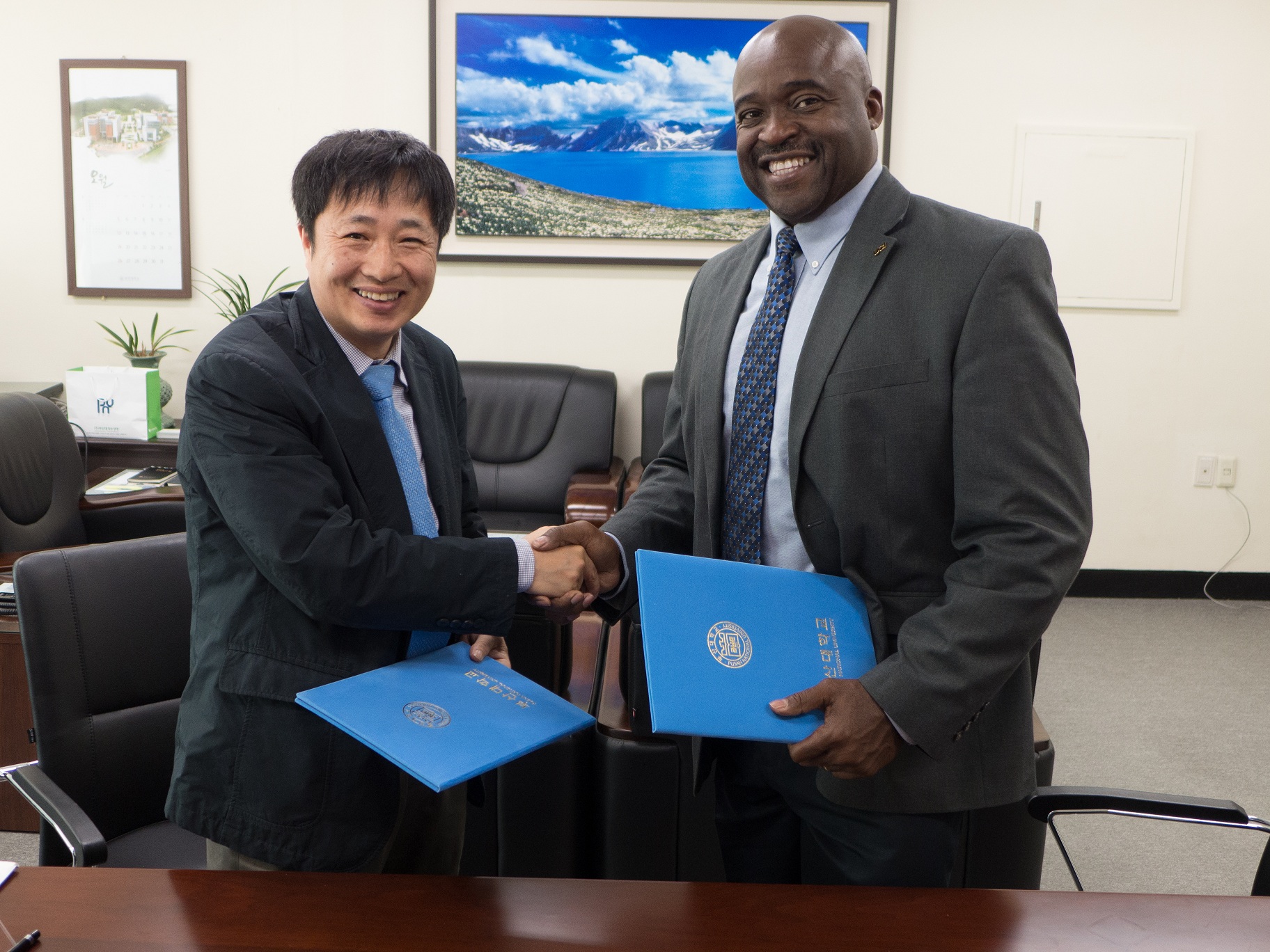Memorandum of Understanding signed on May 29, 2013.
Pusan National University was founded in May 1946 with the establishment ideology of truth, liberty and devotion. Although the University started initially with just two faculties, the Faculty of Humanities and the Faculty of Fisheries, since then, it has grown into a major research level institution covering all the major disciplines within academia. Today, the University enjoys its reputation as one of top universities in Korea.
The University now comprises fifteen colleges, one independent division, one general graduate school, four professional graduate schools and five special graduate schools, and contributes to the development of the nation by producing prominent experts and talented leaders.
As of March 2008 graduates of PNU totaled 127,542 bachelor’s degree holders, 28,411 master’s degree holders, and 5,152 doctoral scholars, many of whom are playing central roles as community, national and world leaders.
PNU, the true university that lives up to the values of truth, freedom and service, is creating a new value system based on a humanitarian spirit and its insights on the trends of the times. PNU provides and realizes a future vision for society through academic research and HR development, contributing to the development of humanity and society.
As a true university that represents Korea, PNU aims to foster capable talents who can teach and study in-depth academic theories and methods of applications based on the national educational philosophy of Korea and PNU’s spirit of truth, freedom and service, while contributing to development of the country and society.
A Memorandum of Understanding between The Henry Samueli School of Engineering, University of California, Irvine and College of Nanoscience and Nanotechnology, WCU Team of Nano Optomechatronics-Based Cogno Engineering, Pusan National University agreed to encourage and promote the following academic and educational activities:
- promote institutional exchanges by inviting faculty, research scholars and staff of the partner institution to participate in a variety of teaching and/or research activities and professional development
- promote student exchange
- carry out joint research and continuing education programs
- promote interest in the teaching and research activities of the respective institutions
- enhance the understanding of the economic, cultural and social environment of the respective institutions


